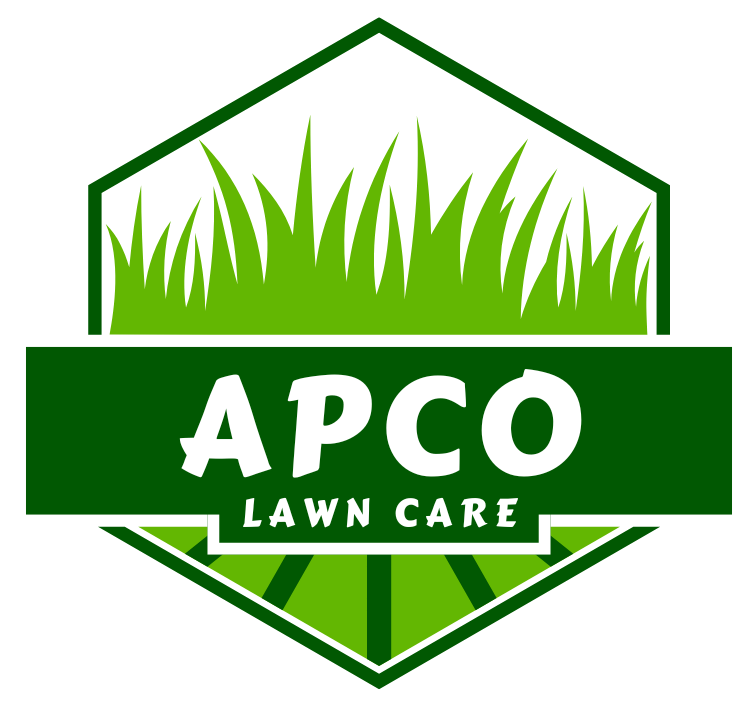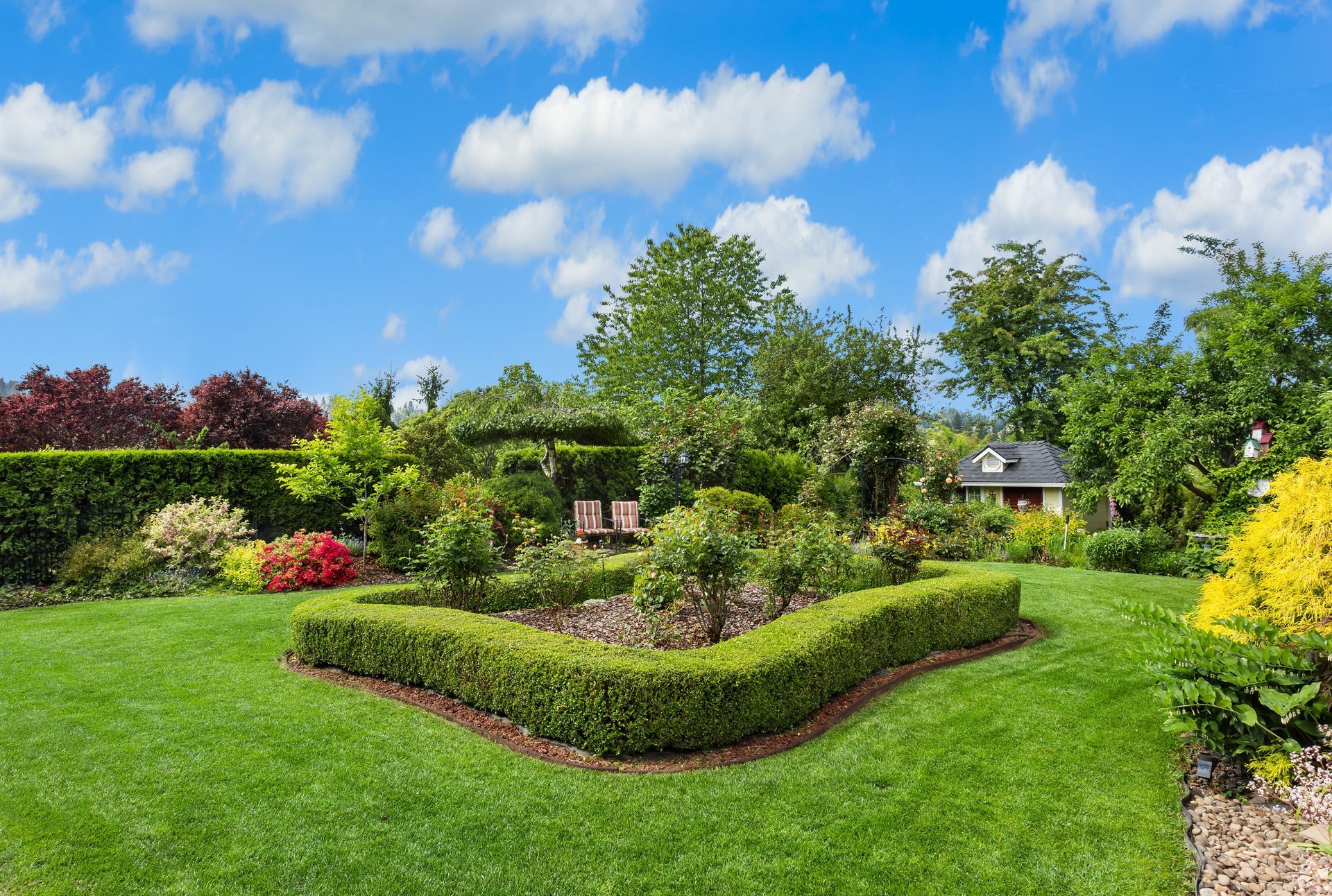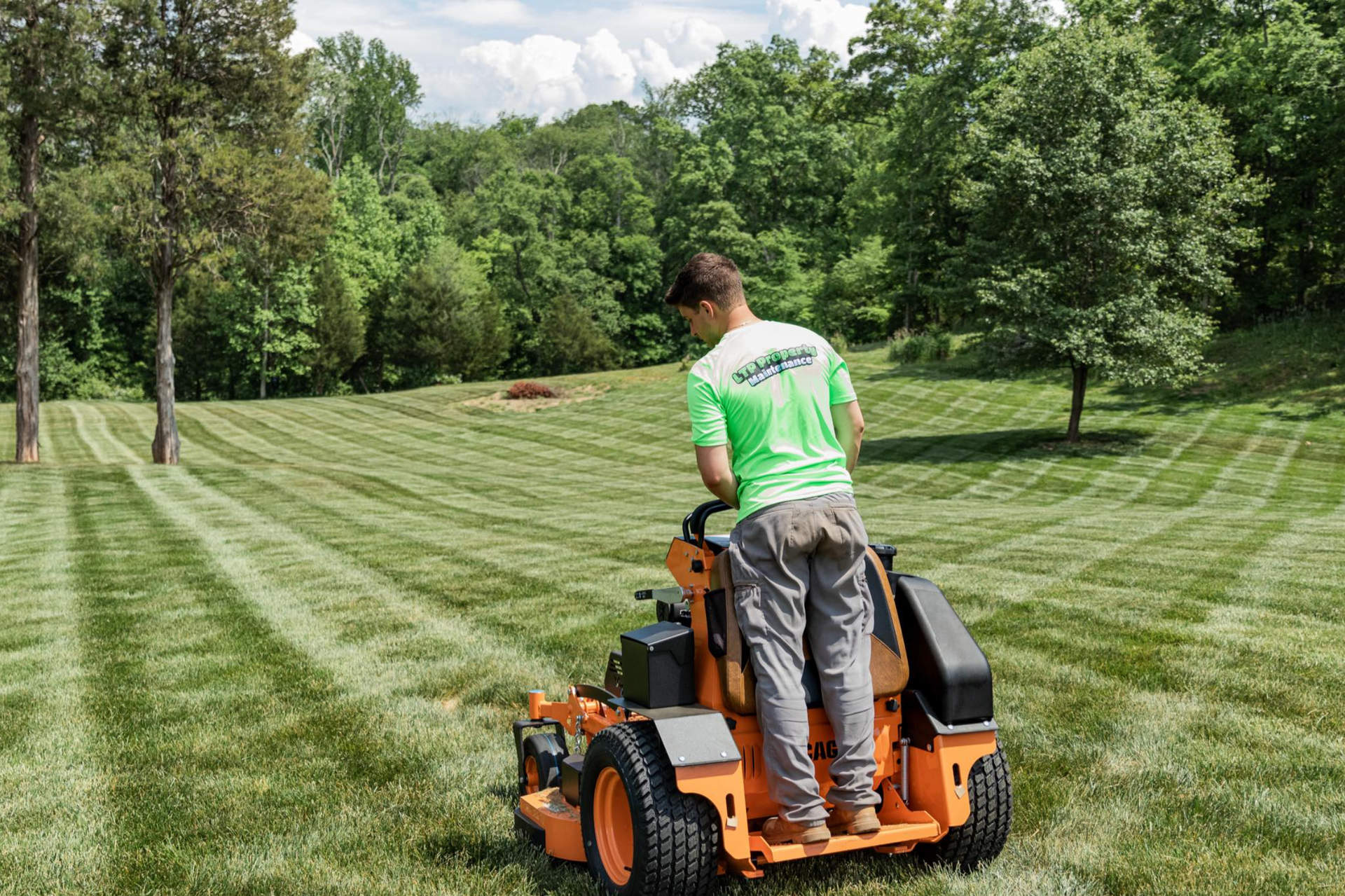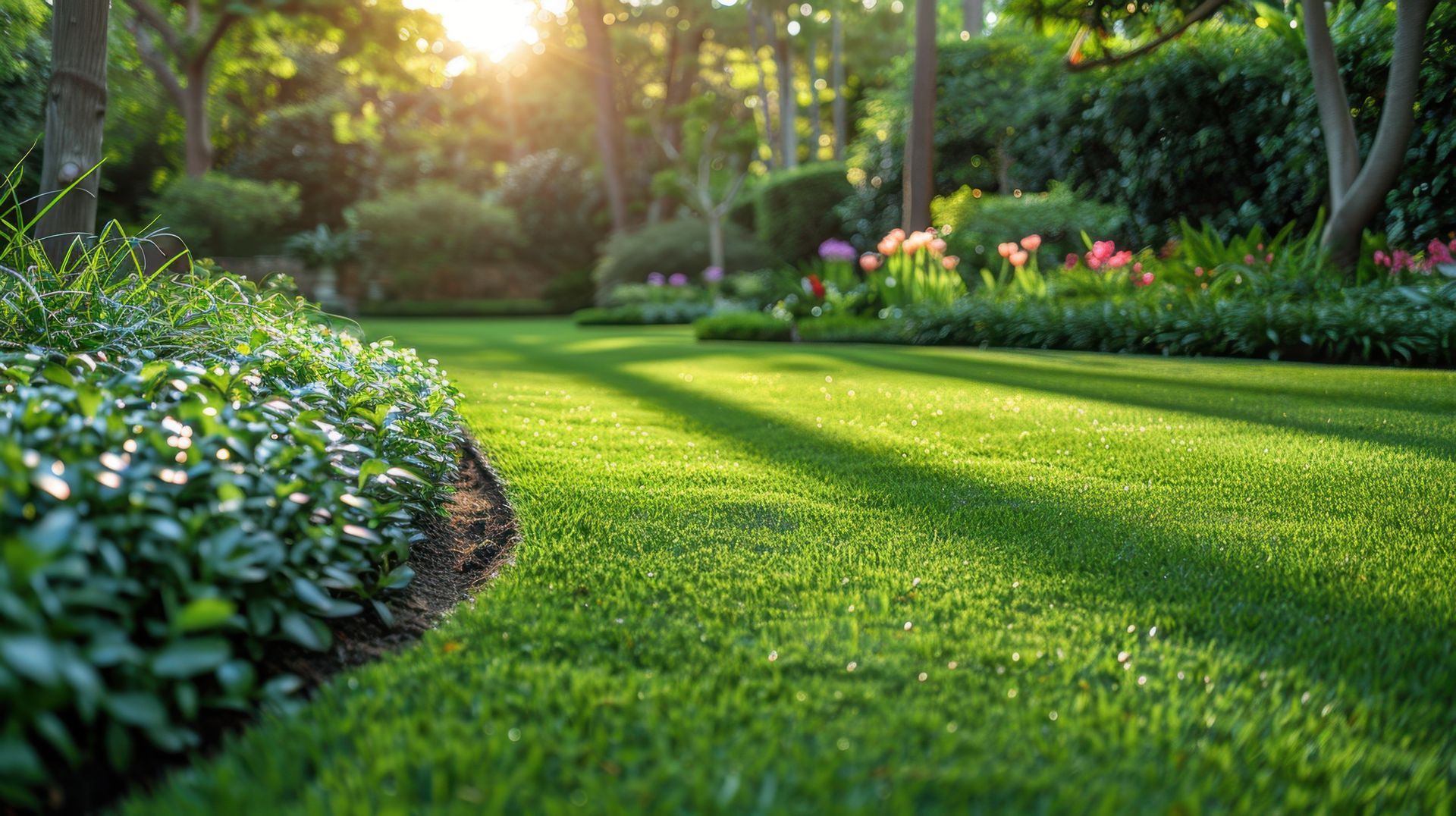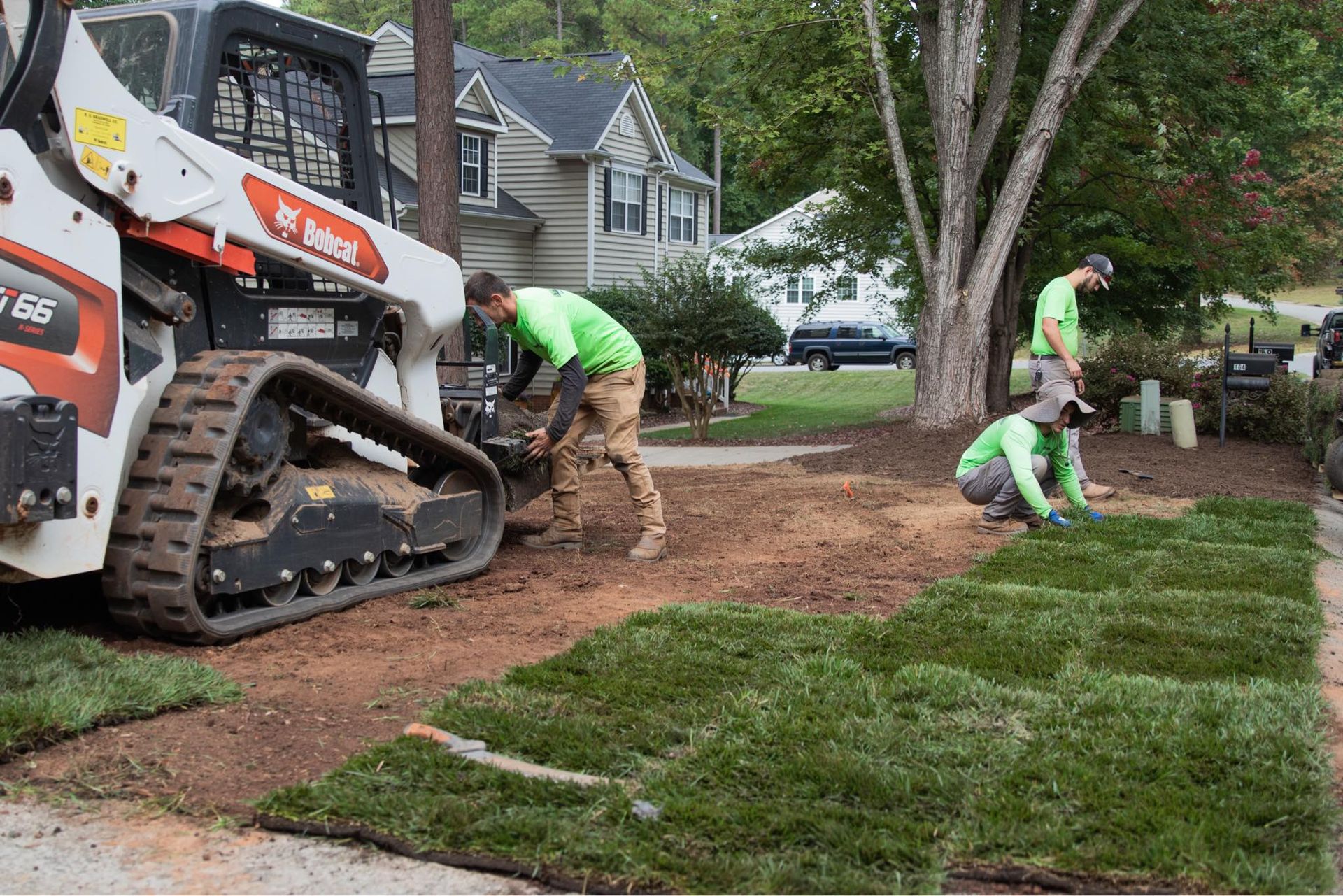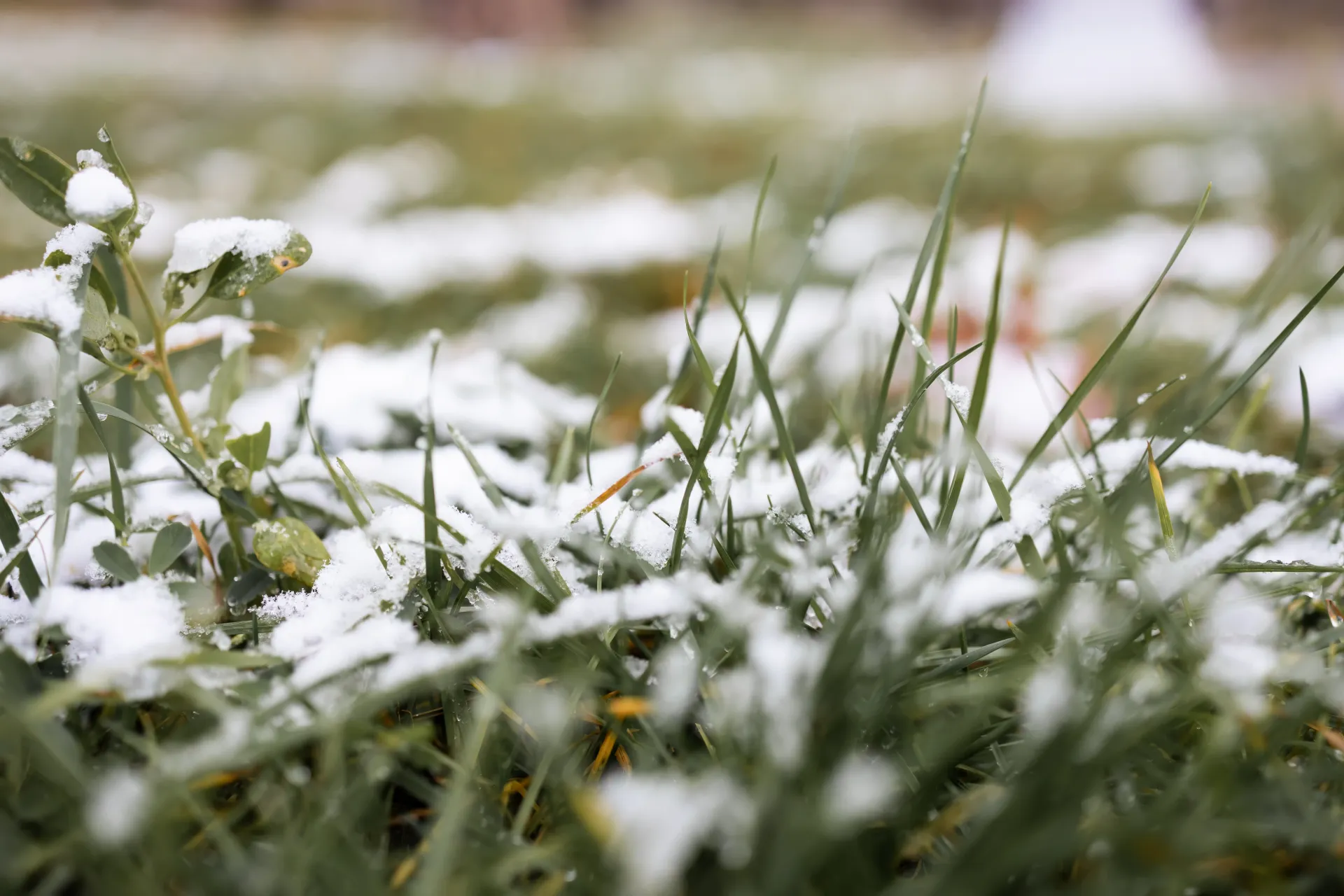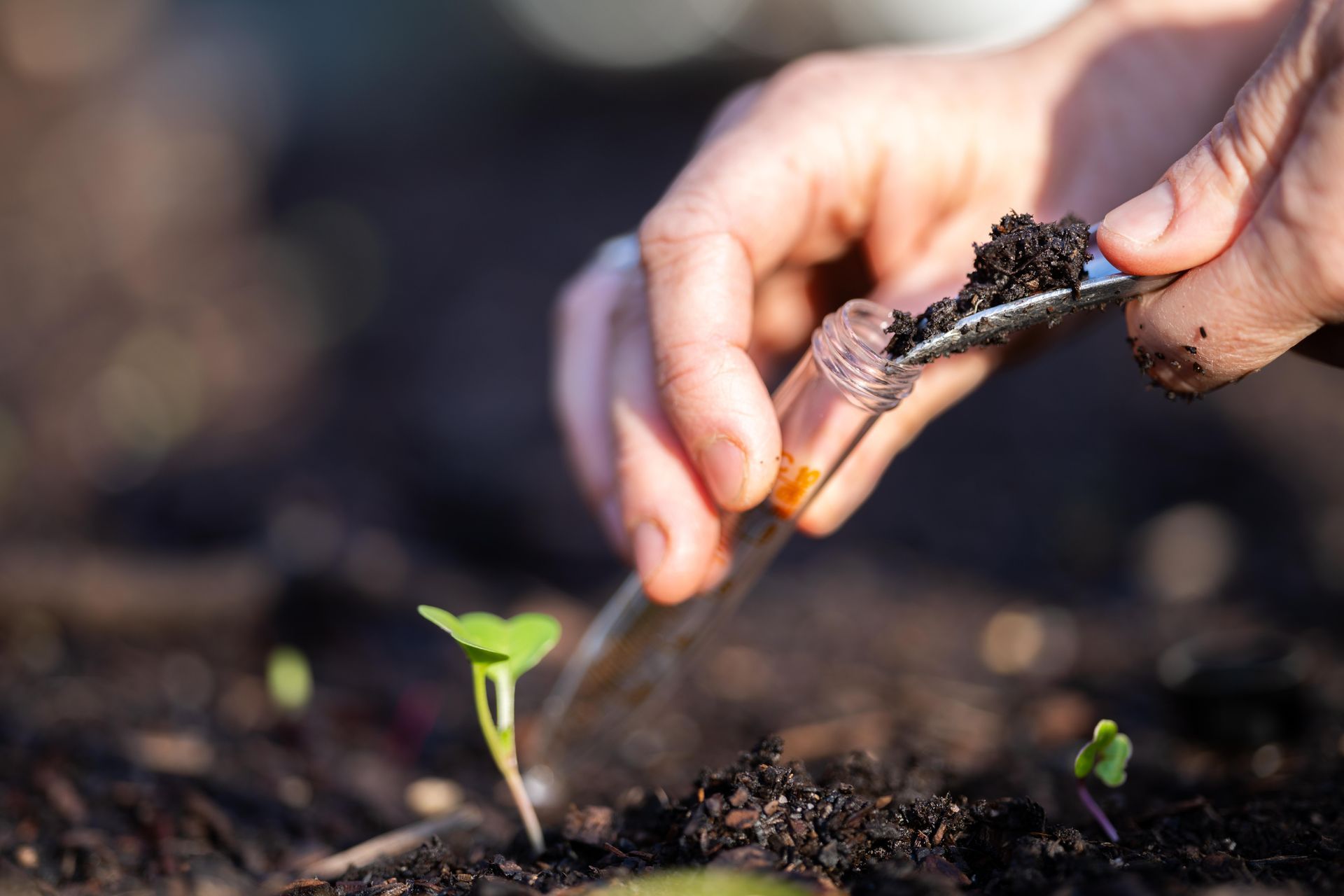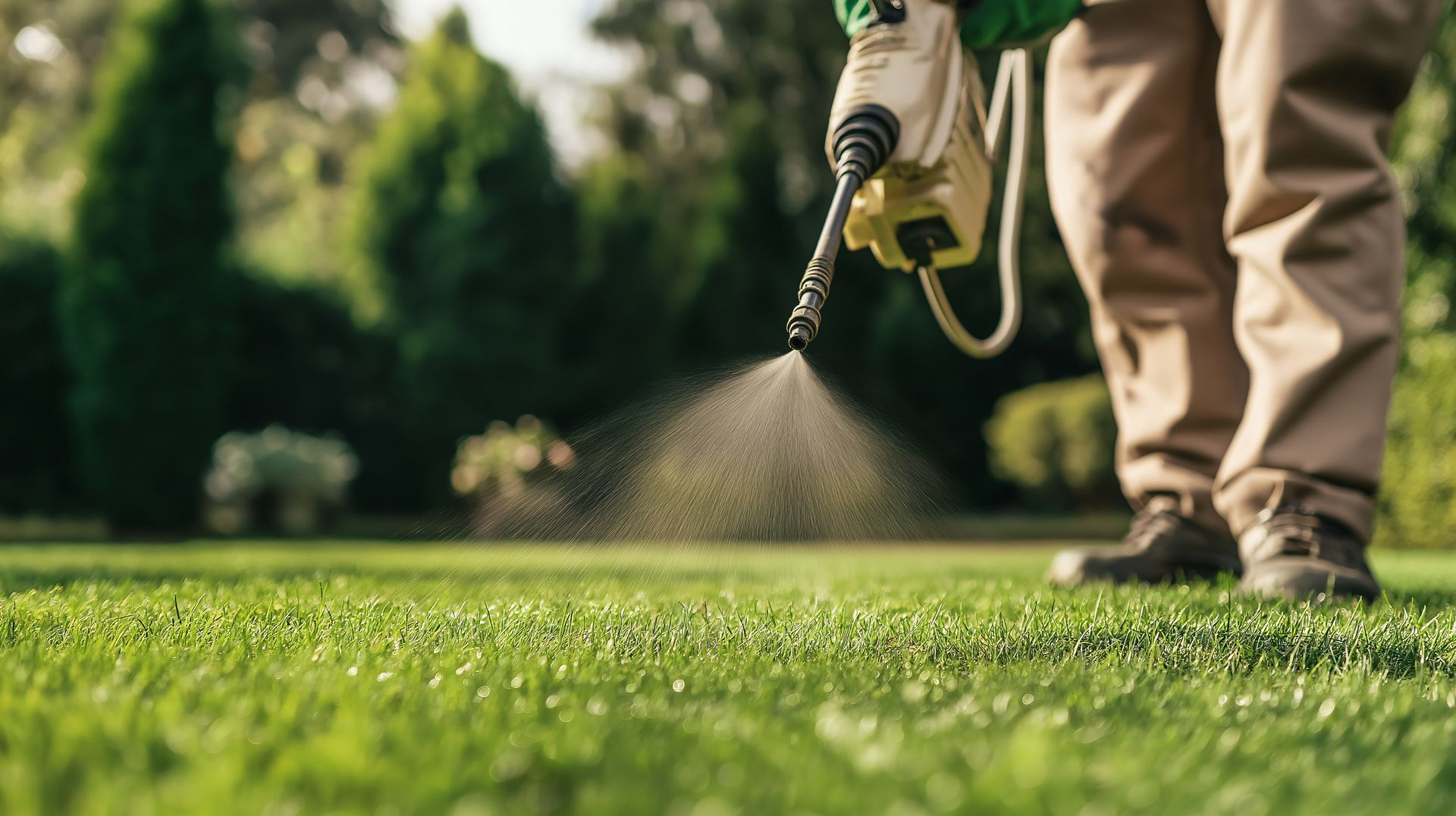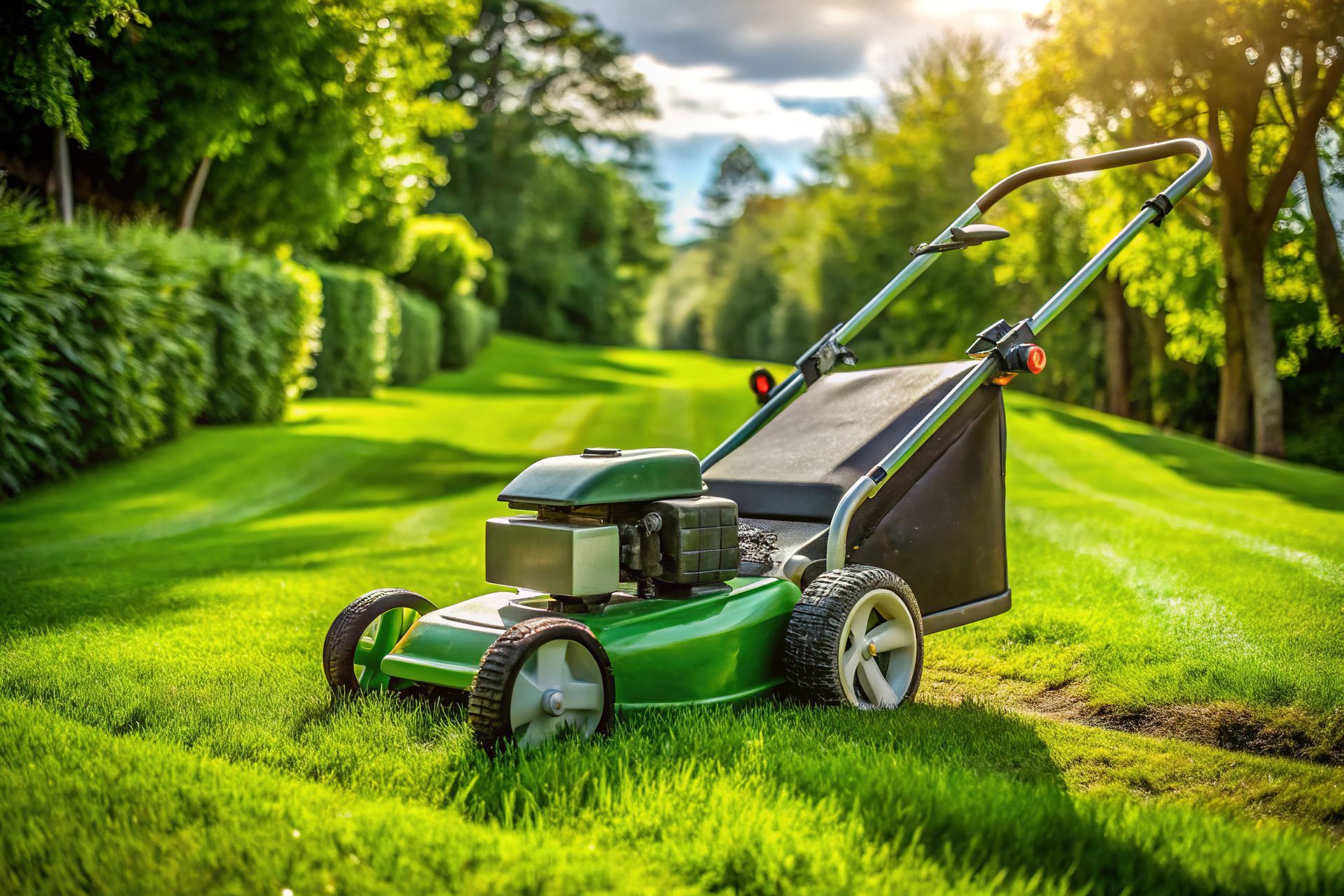Expert Lawn Care: Natural Solutions For Weed Control
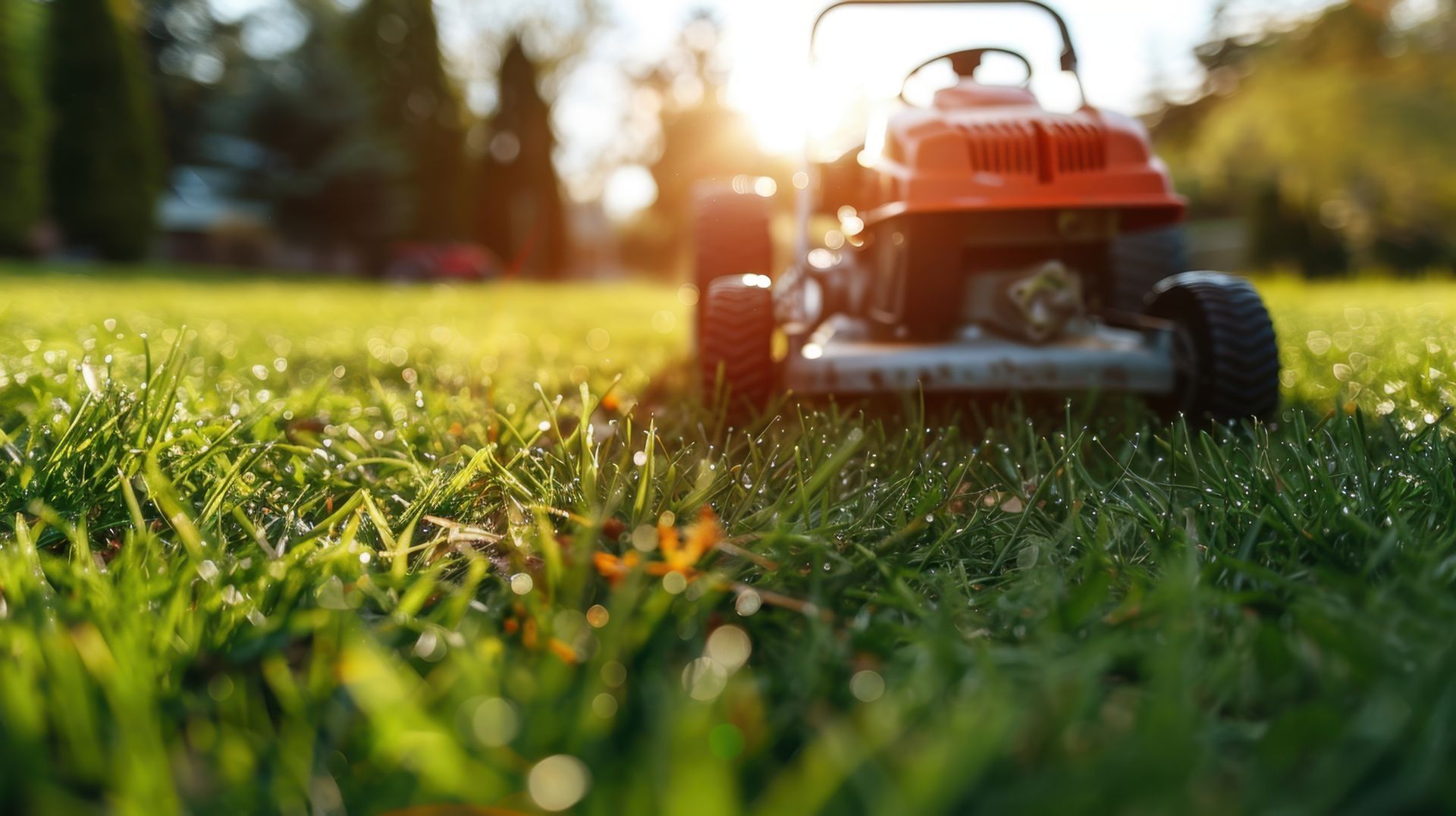
Maintaining a lush, green lawn can be challenging, especially when weeds begin to take over. For residents in Huntersville, NC, keeping a lawn healthy and weed-free without harsh chemicals is not only possible but beneficial to the environment and local ecosystem. LTP Property Maintenance offers effective natural weed control solutions that are safe, sustainable, and tailored to the specific conditions of North Carolina lawns. Here’s how you can naturally tackle weeds and ensure your lawn stays vibrant and healthy.
Understanding Common Weeds In Huntersville Lawns
Before implementing natural weed control methods, it’s crucial to know which weeds are common in Huntersville lawns. This area’s climate supports a variety of grass types, from Bermuda to Fescue, which can be susceptible to weeds such as:
- Dandelions: Known for their bright yellow flowers and fluffy seed heads, dandelions can quickly take over patches of grass.
- Crabgrass: An annual weed, crabgrass thrives in sunny areas and often grows along sidewalks and driveways.
- Clover: Although sometimes desirable for its nitrogen-fixing abilities, clover can spread fast and crowd out other plants.
- Chickweed: This weed often grows in moist, shaded areas and can spread rapidly.
Each of these weeds requires different tactics to manage effectively and naturally.
Embracing Preventative Lawn Care
The best way to control weeds naturally is to create a lawn environment that discourages their growth. Implementing a few simple practices can go a long way in keeping your yard weed-free. Click The Ultimate Guide To DIY Lawn Care Projects for more details.
Regular Mowing
Maintaining the ideal height for your grass type is essential. Mowing too low weakens the grass, making it more susceptible to weed invasion. For example, Fescue grass should be kept at about 3-4 inches in height, while Bermuda grass fares better at 1-2 inches. Taller grass shades the soil, reducing the sunlight needed for weed seeds to germinate. LTP Property Maintenance can help you find the perfect mowing schedule to keep your grass healthy and discourage weeds.
Fertilization
Organic fertilizers, such as compost, provide essential nutrients to the soil, strengthening the lawn against weeds. Regular fertilization helps to promote thick grass that leaves little room for weed growth. Organic compost applications every spring and fall are particularly effective, improving soil health and adding organic matter to the lawn.
Aeration
Compacted soil encourages weed growth by preventing water, nutrients, and air from reaching grass roots. Annual aeration relieves compaction and improves root growth, making your grass more resilient. Fall or early spring is the ideal time to aerate North Carolina lawns, and LTP Property Maintenance can assist in scheduling this important step.
Natural Weed Removal Methods
If weeds have already made an appearance in your lawn, there are several natural remedies you can use to target them without harsh chemicals. Here are some proven methods to tackle specific types of weeds.
Hand Pulling
For smaller lawns or areas with only a few weeds, hand-pulling can be effective. For deeper-rooted weeds like dandelions, use a weeding tool to ensure the entire root system is removed. Hand pulling may be time-consuming but is highly effective, especially when done after a rain when the soil is soft.
Boiling Water
Boiling water is a natural, affordable, and effective way to kill weeds. Carefully pour boiling water directly onto the weeds to damage their leaves and roots. This method works best on driveway cracks, sidewalk edges, or areas away from desired plants, as boiling water can harm any plant it touches.
Vinegar Solution
A solution of vinegar and a few drops of dish soap can serve as a natural herbicide. The vinegar’s acidity kills the leaves and dries out the plant, while the soap helps it stick. However, vinegar can damage any plant it touches, so apply carefully with a spray bottle, targeting weeds specifically. Repeat applications may be necessary for tougher weeds, but this method is safe and eco-friendly.
Mulching
Applying organic mulch, like shredded bark or straw, around trees and flower beds helps retain moisture, regulate soil temperature, and prevent sunlight from reaching weed seeds. Not only does this help prevent weeds, but it also enriches the soil as it decomposes, further benefiting your plants.
Enhancing Soil Health
Healthy soil is the foundation of a resilient lawn. Poor soil can lead to a weak lawn that’s susceptible to weed growth. Here are some natural ways to improve soil health and make it less hospitable to weeds.
Testing And Amending Soil pH
Soil pH plays a vital role in nutrient availability for grass. Grass generally thrives at a pH level of 6.0-7.0, while many weeds prefer more acidic or alkaline conditions. By testing and adjusting soil pH, you can make your lawn more favorable for grass and less so for weeds. North Carolina soils can sometimes become too acidic, so adding lime can help balance the pH and promote grass growth.
Compost And Organic Matter
Regularly adding compost to your lawn provides essential nutrients and beneficial microorganisms that enhance soil structure and fertility. By spreading a thin layer of compost each fall, you strengthen the soil and make it more conducive to grass growth. This also supports natural weed resistance, as healthy, well-fed lawns crowd out weeds naturally.
Encourage Beneficial Microorganisms
Encouraging beneficial microorganisms in your soil can also help with weed control. Microorganisms decompose organic matter, recycle nutrients, and suppress harmful pathogens. Adding organic materials like compost or compost tea can support a robust microbial community, giving your lawn a natural defense against weeds.
Overseeding To Outcompete Weeds
Overseeding, or adding new grass seed to an existing lawn, is an effective way to combat weeds by thickening the lawn. A dense lawn leaves little room for weeds to establish. Overseed in the fall, as North Carolina’s mild autumn temperatures provide an ideal growing environment for new grass. The experts at LTP Property Maintenance can recommend the right seed type and overseeding strategy for your specific lawn and soil conditions in Huntersville.
Companion Planting And Ground Covers
In areas like garden beds, companion planting can help deter weeds. For example, ground covers like clover or thyme spread quickly and outcompete weeds, while some herbs, like rosemary and basil, repel certain weed species and pests. Companion planting around your lawn’s borders or within garden beds can help reduce the need for constant weeding and add variety and color to your landscaping.
Maintaining A Regular Lawn Care Routine
Consistency is key when it comes to natural weed control. By implementing the tips above as part of a regular lawn care routine, you can keep your lawn healthy and resilient against weeds. Here’s a sample seasonal checklist for natural lawn care Huntersville NC:
- Spring: Aerate and fertilize your lawn; hand-pull emerging weeds; apply organic mulch around trees and beds.
- Summer: Mow regularly, keeping grass at its optimal height; use vinegar spray for spot weed treatment; water deeply but infrequently.
- Fall: Overseed thin areas; apply a layer of compost; adjust soil pH if needed; add mulch as needed.
- Winter: Monitor soil moisture, especially during dry spells; hand-pull any remaining weeds on mild days.
Why Choose LTP Property Maintenance For Natural Lawn Care In Huntersville, NC?
With years of experience in North Carolina lawn care, LTP Property Maintenance is committed to helping homeowners achieve beautiful, healthy lawns through sustainable practices. Whether it’s soil testing, aeration, overseeding, or natural weed management, LTP’s team has the expertise and tools to provide reliable, eco-friendly solutions for your lawn. By choosing natural weed control with LTP Property Maintenance, you’re not only creating a stunning yard but also contributing to a healthier environment.
Conclusion
Dealing with weeds in Huntersville, NC, doesn't have to involve chemicals that could harm your family, pets, and local wildlife. By implementing the right lawn care practices, from mowing to soil health and weed removal, you can create a yard that’s lush, green, and naturally resistant to weeds. And when it comes to maintaining your lawn, LTP Property Maintenance is here to help you every step of the way.
Contact us today to learn more about our natural lawn care services and see the difference we can make for your lawn in Huntersville.
Ready to work with Apco Services?
Let's connect! We’re here to help.
Send us a message and we’ll be in touch.
Or give us a call today at (404) 780-8973
